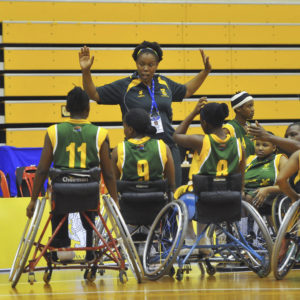Men’s netball is on the up
Netball has traditionally been – and been seen – as a sport for women. But with the support of Netball South Africa, men who play the game are finally being recognised.
Author:
12 November 2021

As a grade 2 learner at Matlapaneng Primary School in Mohlakeng, Randfontein, west of Johannesburg, Shiko “Dukies” Mokaila would often play football in the afternoon and then make his way to watch the girls play netball. Soon, unable to resist, he joined them on the court.
“It was scintillating,” he recalls. “I didn’t know what I was doing. I was simply enjoying the sport.” The girls were surprised at first, he says, because they were not used to boys playing netball.
At home, Mokaila faced a similar reaction. “I grew up with my mom, my grandparents, aunties, uncles and three brothers. At the time, playing a ‘female’ sport as a male was taboo. Initially, culturally, where I came from, the norm was that males cannot play netball. I just had to weather the storm and do what I loved at the time, and after some time they began to understand and gave me their full support.”
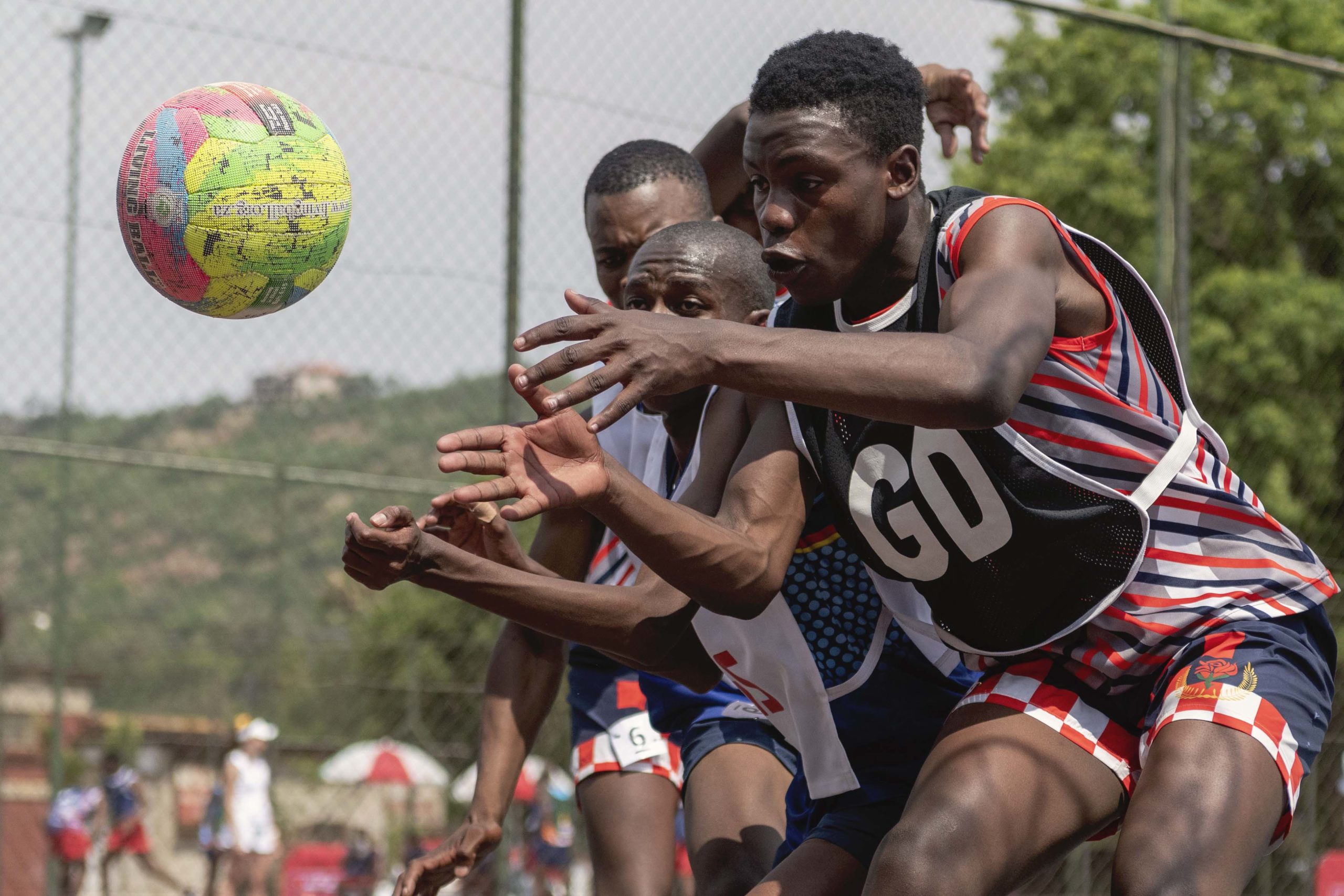
Mokaila – an all-rounder on the court – is the captain of the South African men’s netball team, and an ambassador for men’s netball in the country. With the support of his family, his love and passion for the game grew, but he faced a challenge: there were no netball clubs catering for boys in his age group. He was forced to play open division men’s netball for Golden Girls Netball Club at the age of 12.
AB Phokompe High School, which Mokaila attended, didn’t have a men’s netball team. But the West Rand district arranged for him to go to trials, where he competed with men in their 20s when he was 13. He was chosen to play for the Under-19 schools team and Central Gauteng subsequently selected him. At 18, Mokaila started playing for the Proteas, as the South African men’s netball team is also known.
However, it was a case of being all dressed up with nowhere to go to. “It was a challenge,” he says. “When you are building dreams and training every day and the team doesn’t go anywhere, you come back and ask yourself, ‘Why am I doing this?’”
Changing perceptions
Mokaila says throughout history, men have not been given the same opportunities to play netball as women because of the prevailing mentality that it is a sport for the latter. “When guys are seen playing the sport, the assumption is that you must be gay,” he says.
“But I can’t speak for anyone’s sexuality. It’s wrong to create the perception that any sporting code is gay, lesbian or straight … The narrative needs to be changed. It’s 2021 now and people should be able to do what they want to do without being labelled. We have Banyana Banyana playing soccer. It’s not right to say that they are lesbian.”
Mokaila is doing everything he can to change these perceptions, particularly in his home town of Mohlakeng, where – as part of the Brothers Netball Club – he is actively involved in a grassroots development plan with primary and high schools to identify and nurture male netball talent.
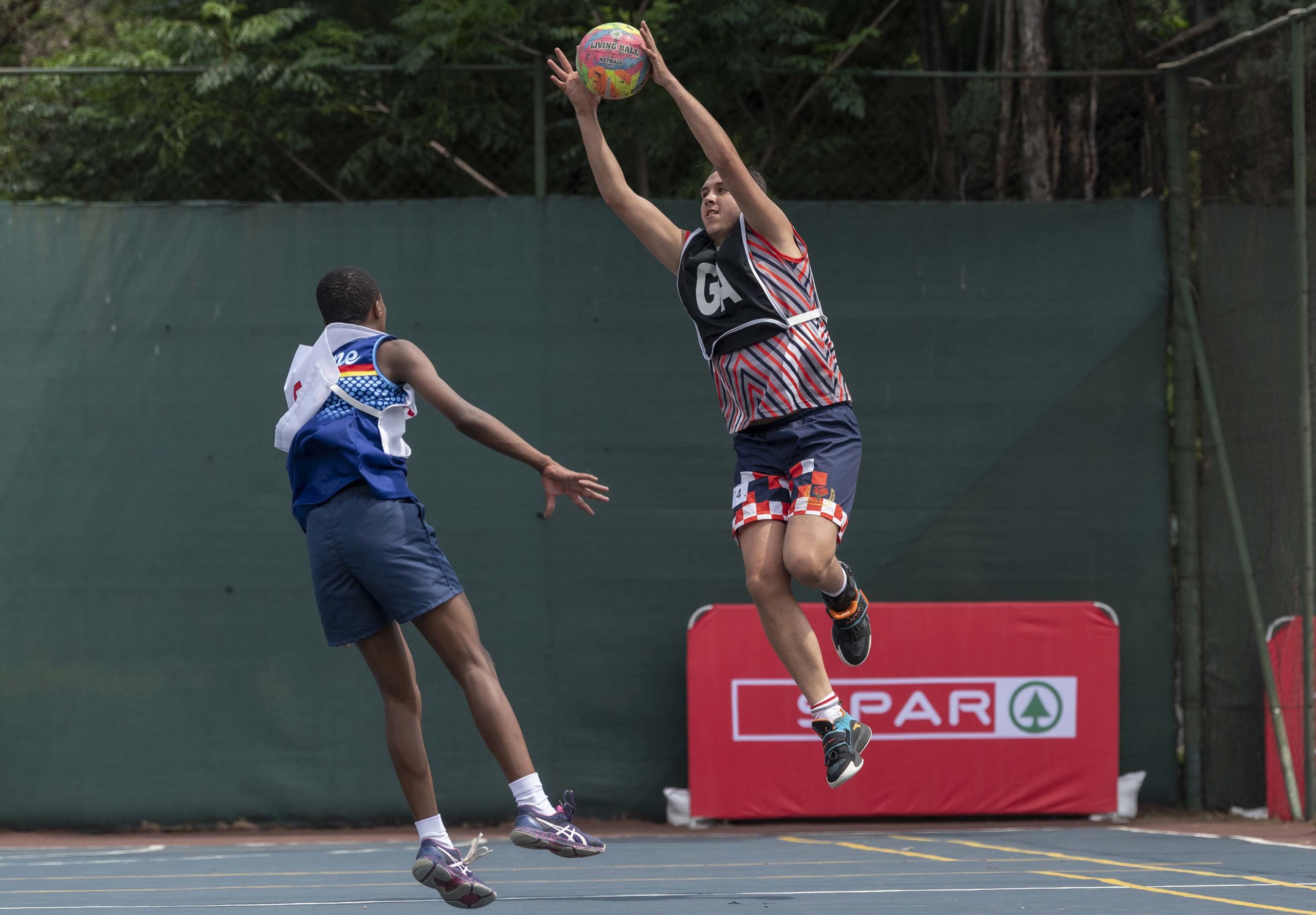
“There is a lot of talent out there,” he says. “But when players are coming through, they are not nurtured properly. It is very important for us to ensure that when we get a diamond, we refine it so that it becomes the best it can be.”
Mokaila’s talent was first spotted by Moshi Mogapi, 57, who doubles as a netball and volleyball coach in Mohlakeng. Mogapi jokes that Mokaila has stolen all his volleyball players. The popularity of men’s netball in the country is growing, he says.
Committed players
“Based on what I see in Mohlakeng, the males are more committed than the females,” says Mogapi. “When there’s a tournament, there’s more males’ teams than females’ teams which enter. These guys, they spend six hours of the day at the tennis court, there’s no time for partying. You wouldn’t believe the level of professionalism Shiko has instilled within them.” If male netball players were given the same opportunities as their female counterparts, they’d be “making big strides”, he adds.
Mokaila acknowledges the role Netball South Africa (NSA) president Cecilia Molokwane has played in giving men’s netball more recognition. Under her leadership, NSA hosted the International Male Netball Tournament from 15 to 21 September – featuring South Africa (who won the tournament), Uganda and Kenya – at the Heartfelt Arena in Pretoria.
“There’s a fate for males’ netball,” says Mokaila. “You can literally recognise now who and what males’ netball is. Under the leadership of Cecilia Molokwane, we are now able to access netball easily and freely and netball has become fashionable again for males and females as well. Everyone is playing with everyone, there’s no discrimination.”
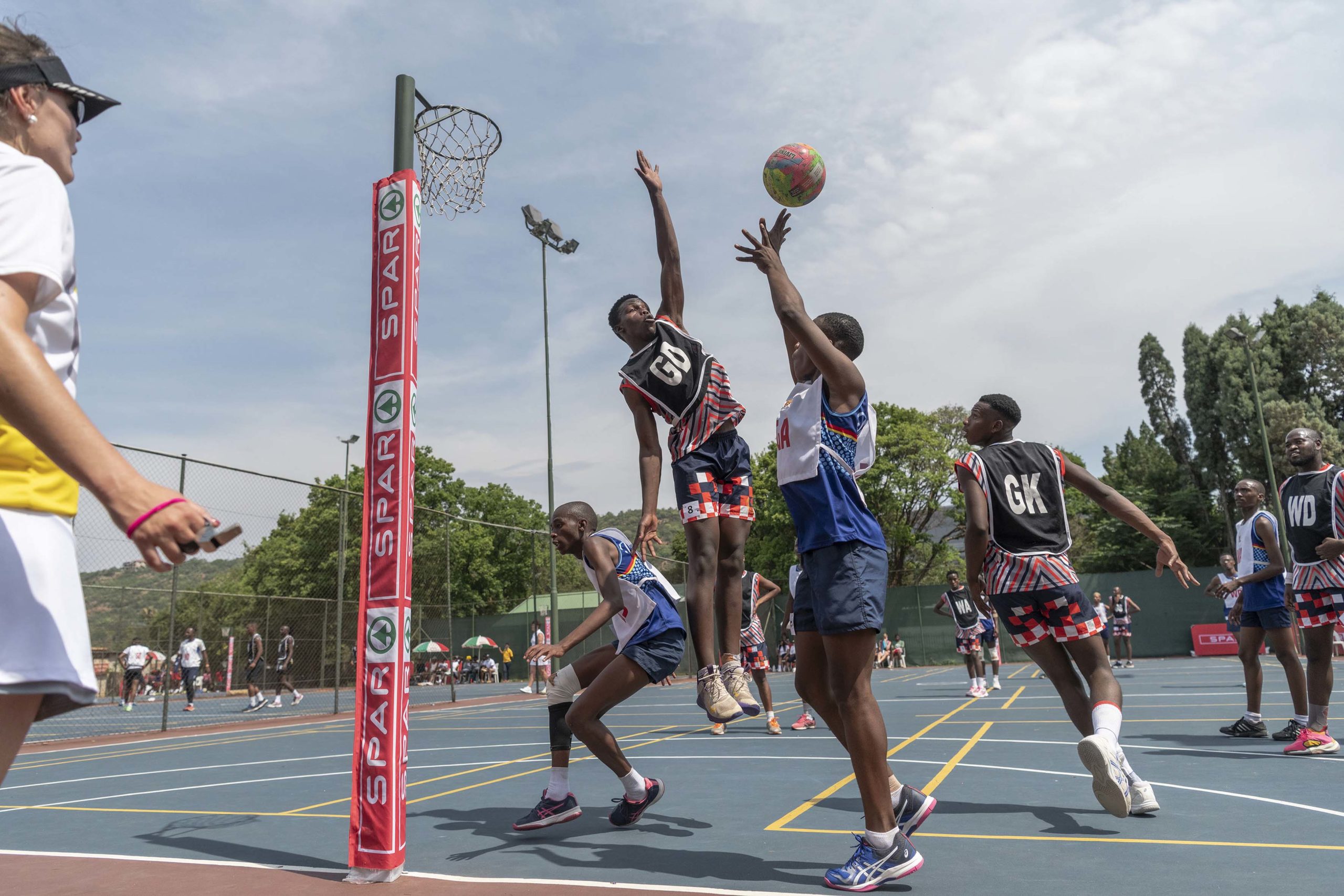
He adds about the tournament: “We are very grateful for the opportunity that presented itself. It was amazing seeing the young guys out there and strutting their stuff. It was mind-blowing and really sparked something up in me. It was really amazing.”
Ashwin Bosman, 28, who represented South Africa at the tournament, describes it as a “milestone” for men’s netball in the country. “The previous times I was selected to represent South Africa, nothing happened from it,” he says. “We didn’t get a chance to play other countries or share the moment with anyone. This year they properly capped us. For us, it’s very significant. It’s a milestone for males’ netball and it shows that Netball South Africa is finally paying attention to all our work.”
The format of the game
In the absence of a men’s netball team, Bosman began playing with girls as a 12-year-old at Standerton Primary School in Mpumalanga. He played with women until he was in his early 20s and then found a men’s team, the Johannesburg Central Netball Club, when he relocated to the city.
“I think the way they have positioned females’ netball is that they want it to be the one sport females are running, versus where males are always playing the sport and females aren’t included,” he says.
When he started playing, netball wasn’t as popular with men as it is now, says Bosman. “What made it uncomfortable was being judged by your peers and how people would look at you. It’s the way people have conditioned their kids’ minds. That’s why netball was never seen as a sport for all genders.
Related article:
“The rest of the world is still warming up to the idea, still trying to see what the male format of netball will look like. Do we coexist with the female format or does one format drown out the other? I think that the powers that be feel that we could overpower female netball.”
Mokaila agrees. “Australia is quite a powerhouse now [for men’s netball], they have their own association,” he says. “I know New Zealand has their own association as well, and I think England, Pakistan, Uganda, Kenya, Morocco, Zimbabwe … every country has got males playing. The problem is the leadership, which does not want males to come out and enjoy the benefits as well.”
A choice for boys
But as Mokaila says, with Molokwane at the helm of NSA, the situation for male netball players in South Africa is improving.
“That stigma of whether male netball players are straight or not will always be there,” says Molokwane. “But we don’t care about that. All we see is the player on the court. We don’t discriminate.”
Molokwane, who is also the president of Africa Netball, adds: “My plan for males’ netball is to grow it and to ensure it’s fashionable and known in all corners of the world, to see that in all schools. Just like girls can choose whether they want to play netball, rugby or soccer, boys must also be able to choose.”
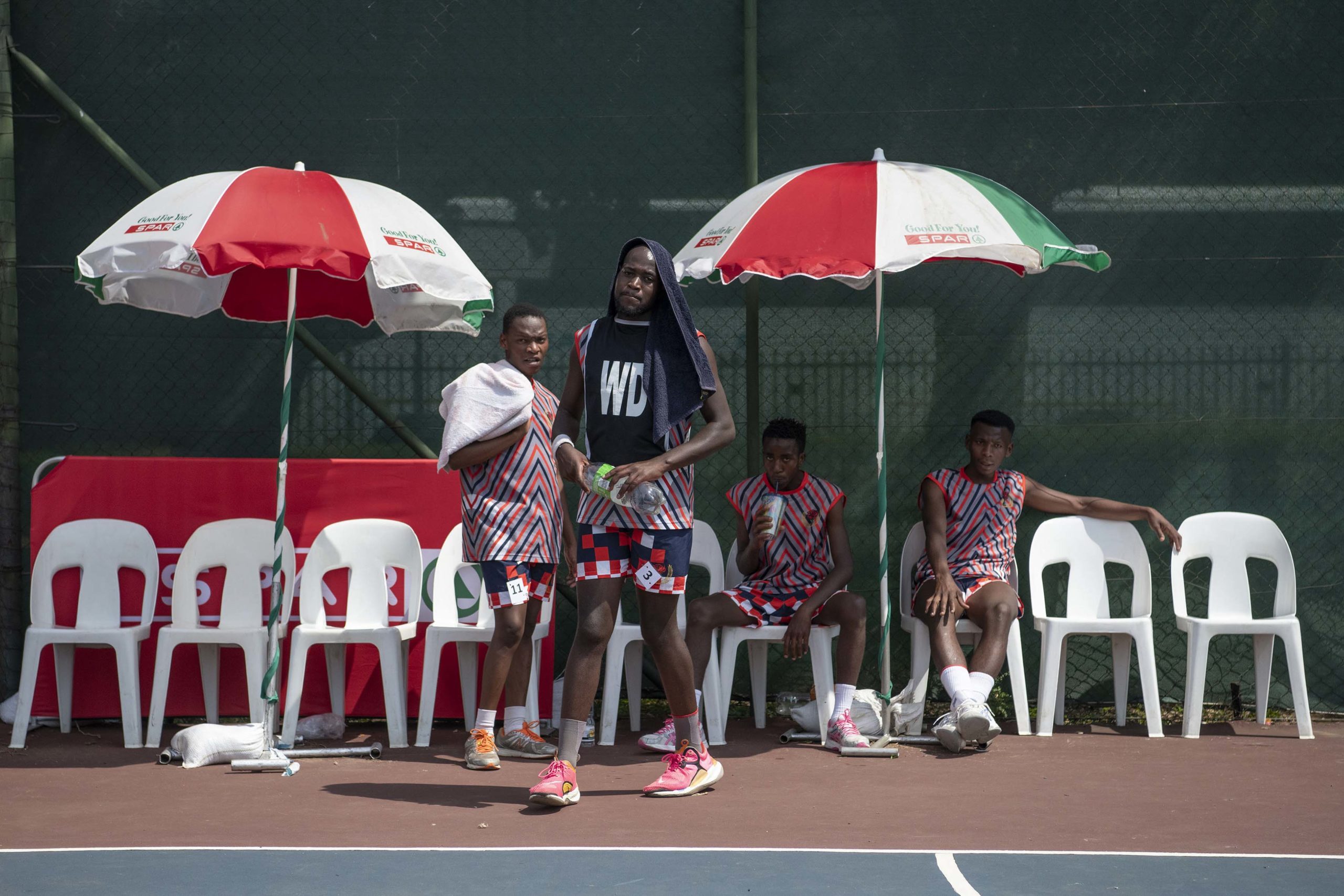
She points out that an Africa Men’s Netball Championship will take place for the first time next year, in Morocco in March. “Males are playing netball, we need to respect them. Once netball qualifies as an Olympics sport, we must have both males and females playing there.”
At 32, Mokaila – who is pursuing a master’s degree in law while working as a manager at the provincial sports department in Gauteng – has a few years of competitive netball left in him. After his career is over, he has one ambition: “I want to pave the way for males’ netball to reach the Olympics. I want to enjoy the last few years of competition and then fight for males to have a spot in the Olympics by 2032.
“Netball is in my DNA, netball is my life right now. Any netball player will agree with me. Right now there is no way for me to stop for anything.”

